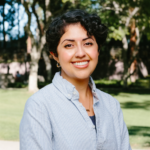
Limited English Proficient Speakers and Their Access to Medicaid Managed Care
Executive Summary
Medicaid plays a crucial role in enhancing health care access and reducing health disparities among marginalized communities. While the program has increased access to health care for low-income individuals, access to certain health care providers remains an ongoing challenge. Over the past 10 years, state Medicaid programs have gradually shifted from traditional fee-for-service models to Managed Care Organizations (MCOs) to improve health care quality and service administration. However, Latino/Hispanic and Asian Medicaid MCO patients with Limited English Proficiency (LEP) have reported worse experiences in terms of receiving timely care, communicating with their provider, and receiving help from staff. This policy report delves into the challenges LEP populations face when navigating health care through MCOs.
We examine the distribution of MCO Spanish- and Chinese-speaking providers and their overlap with; i) areas more likely to be populated by Spanish and Chinese speakers, and ii) areas classified by the federal government as medically underserved. We also compare Medicaid eligibility criteria across the three metropolitan statistical areas (MSAs) with the highest concentration of foreign-born individuals and LEP populations of Latino and Asian heritage.1 These MSAs are Los Angeles-Long Beach-Anaheim (Los Angeles MSA) in California, Houston-Pasadena-The Woodlands (Houston MSA) in Texas, and New York-Newark-Jersey City (New York MSA).
We used multiple publicly available data sources, scraping of online Medicaid MCO health plan directories, and georeferencing techniques to first determine if Spanish- and Chinese-speaking providers were in areas with a high population of foreign-born Latino and Chinese populations. We then assessed whether the Spanish- and Chinese-speaking providers were in Medically Underserved Areas and Populations (MUA/P) designations, which identify the census tracts that lack access to primary care services.2
The key findings are:
- State-level immigration policies influence access to Medicaid MCOs for LEP populations.
- Spanish- and Chinese-speaking providers tend to cluster across all three MSAs as opposed to being evenly distributed.
- Medically Underserved Areas (MUAs) overlap with census tracts with higher-than-county-average numbers of foreign-born Latinos.
- Access to Medicaid navigation resources for LEP individuals varies significantly across states.
Based on our findings, we provide the following recommendations to reduce barriers to accessing high-quality health care for foreign-born LEP adults with Medicaid managed care:
- States should continue to adopt Medicaid expansion efforts, either under the Affordable Care Act (ACA) to cover low-income adults or through state initiatives such as Medi-Cal expansions in California.
- States should expand Medicaid coverage to immigrant communities.
- Health care providers should extend language and translation services beyond patient-clinician communication.
- All state Medicaid programs should collect demographic information that includes data on primary language and LEP.
- States should leverage the new Centers for Medicare and Medicaid Services (CMS) payment rule to include interpretation services for adult patients in their capitation rate.
- States and health provider offices should retain and increase the number of bilingual staff serving LEP populations.
We conclude that Medicaid eligibility criteria can serve as the first barrier to access, depending on the state of residence. In addition, Spanish-speaking Medicaid providers in three MSAs overlap with the place of residence of foreign-born Latinos. Also, these areas were more likely to overlap with medically underserved census tracts. Finally, the presence of Chinese-speaking providers is less widespread in the three MSAs, but they are less likely to be in medically underserved areas.
Endnotes
1 Spanish and Chinese are the most frequently spoken languages among foreign-born individuals of Latino and Asian descent, respectively, based on an LPPI analysis of the American Community Survey 1-Year Estimates, 2022.
2 U.S. Health Resources & Services Administration, “What Is Shortage Designation?” June 2023, available online.
Erratum
The original version of this report published October 2, 2024 incorrectly reported values in Maps 3 and 4. The reporting error did not change the qualitative findings of the analysis (updated October 29, 2024).














